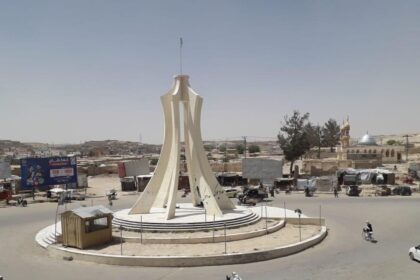RASC News Agency: The denizens of Mazar-e-Sharif city, nestled in the epicenter of Balkh province, have articulated their grievances concerning the pressing matter of air pollution. In statements provided to the media on Tuesday, December 26th, residents underscored the deleterious impact of air pollution on their health, particularly the exacerbation of respiratory ailments. They pinpointed the prolific use of smoky fuels, including plastic materials, as the principal catalyst for air pollution within the city.
In response to these voiced concerns, the inhabitants beseech the authorities of the Taliban group to expeditiously address this issue. They implore the Taliban officials to formulate and enact efficacious plans to combat air pollution, safeguarding the health of the populace in Mazar-e-Sharif. The residents contend that the apathy of the Taliban officials towards this matter intensifies the predicament, imperiling their well-being.
In recognition of the citizens’ apprehensions, the environmental department of the Taliban group in Balkh has affirmed the exigency for action. They assure the public that they are actively involved in diverse initiatives to alleviate air pollution, encompassing the installation of filters in polluting centers and the issuance of environmental permits. Nevertheless, it is imperative to acknowledge that with the progression of the winter season, the anticipation is for air pollution to intensify, owing to the heightened utilization of smoky fuels by citizens in major urban centers such as Kabul and Mazar-e-Sharif.
It is of paramount importance to underscore the socio-economic milieu in Afghanistan, where a substantial segment of the population resides below the poverty line. This economic adversity compels families to rely on plastic fuels for heating their homes during the winter season, further contributing to air pollution. The dependence on such fuels not only perpetuates the cycle of pollution but also poses a menace to the health and well-being of the Afghanistani citizens. Endeavors to address air pollution must take into account the underlying factors perpetuating its persistence, including poverty and the constrained access to clean energy alternatives.






